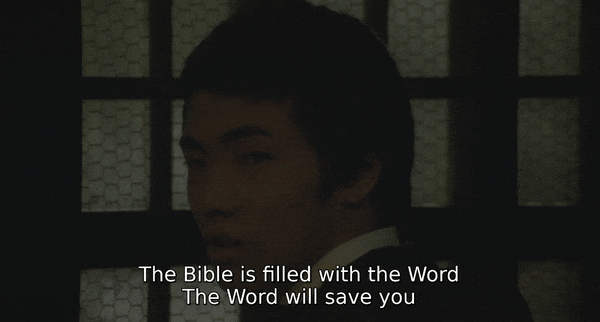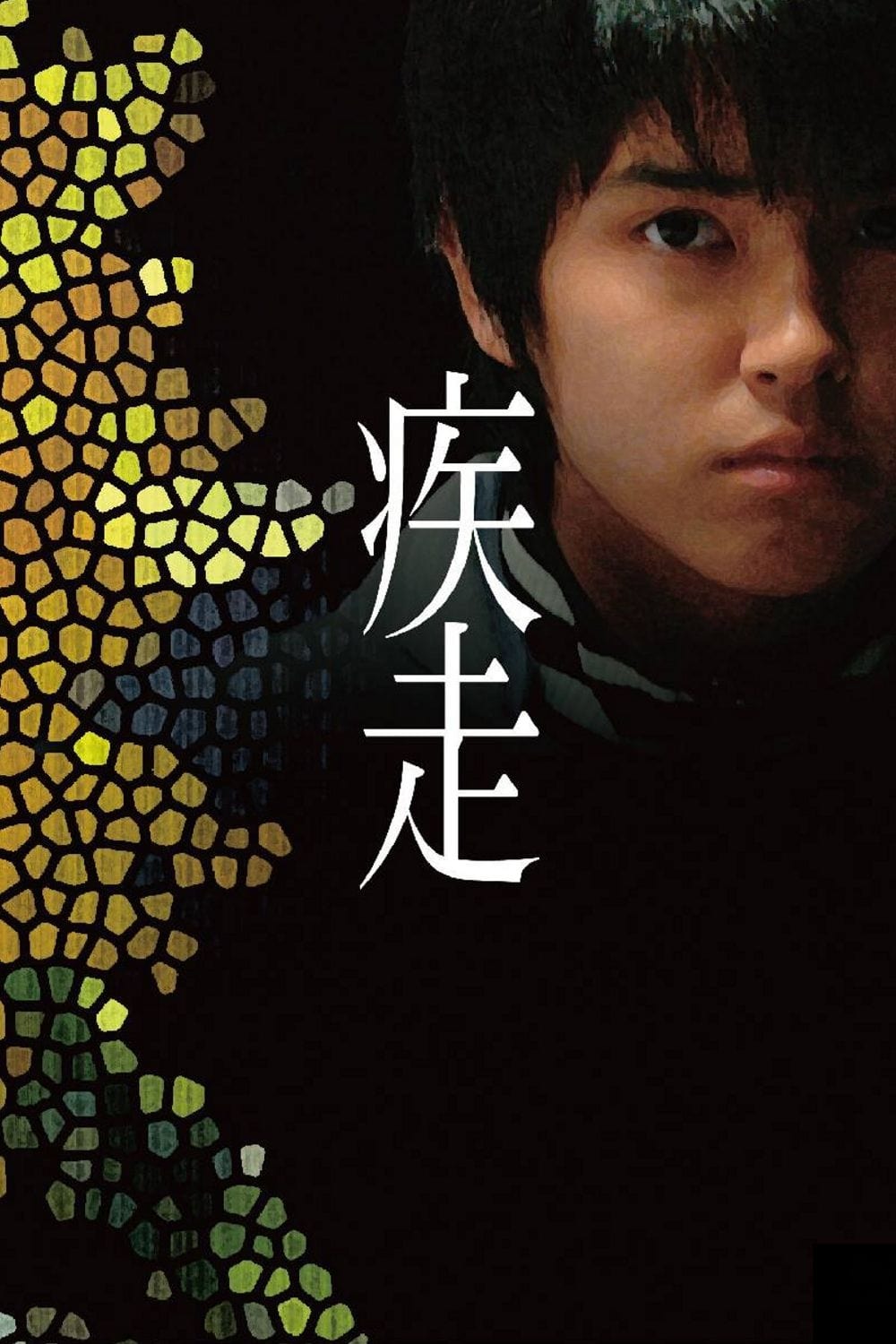Dead Run is a 2005 Japanese drama film directed by SABU. The movie is an adaptation of the novel "Shissô", written by Japanese best selling author, Kiyoshi Shigematsu. It stars Yuya Tegoshi, Hanae Kan and Miki Nakatani.
source: There is no wikipedia page.
Shuji and his older brother Shuichi live in a sad resort town that has a virtual wall in its middle. Looking to rise him above his surroundings Shuji meets and interacts with a priest with a past, a pretty hostess, a troubled girl, a thug and more. Looking for the girl who has moved with his family to Tokyo the boy meets trouble and is sinking quickly.

***SPOILER ALERT***
K: Hey Freddy! Today we have Dead Run, a 2005 film about a boy named Shuji (Yuya Tegoshi) and his life experiences. Honestly, I’ll start by saying that at the end of the film I was completely confused. Everything that happened was mixed up in my head - religion, the yakuza, death and the bizarre interweaving of the fates of the characters. For me, this story is about a "little man", about a boy who thought and felt, loved and dreamed, but faced the fact that the big world around him is stronger. A whole series of unpleasant and bitter events took place in his life. Everyone left him and he was not at all to blame for this. Religion did not save him, nor Eri(Hanae Kan), whom he had fallen in love with.
F: Aight! How's it going? Great intro to Dead Run there, Krasnaya. I have to say that this movie drifts miles away from the usual SABU writing style that we have got used to. It's really a different movie from everything we've seen so far, mainly because there is 0 comedy in it. Here we follow a coming-of-age and family drama about, like you said, a boy named Shuji. It's easy to become a little depressed after watching this movie because a somber tone filter is present in the picture until the last moment when we are finally greeted with vivid colors and sunflowers. This filter is accentuated at the beginning when we see the main character and his brother as little boys talking to each other about the land where they live. This technique also gave the movie a melancholic sense of time. I liked how the movie started and I felt it had a good, calm pace. At mid-film, unfortunately, the rhythm was lost. Don't know if it was the story or the acting. I'm confused, like Krasnaya.
 |
| Real nice. |
K: I really liked the cinematography of the film - the rice fields, Shuji and Eri meeting at the invisible border between "Shore" and "Offshore", Tokyo at night with flower-shaped lanterns, a terrifying yakuza room hung with black ropes like a cobweb from which you can't get out. In this, SABU never changes itself, the picture is always perfect, verified to the smallest detail, with the exception of Shuji's bloody face. Why leave the hotel room like that when the lobby is full of people?
The character Eri remained completely incomprehensible to me. Why did she let Shuji into the church? Why did she tell him her family secret? She also gave him a knife, knowing that Shuji would never be able to kill her. Due to plot understatements, it seems to me that the actors were not able to fully reveal their characters. I empathize more with the girl that was sold to the yakuza than Eri. Yûya Tegoshi did a good job, he didn't need many words to convey what he had inside him. The scene with him howling at the window is a very strong performance.
F: The cinematography and music are what we took away from this movie. It's excellent indeed. The character development didn't work for me either. The characters all seemed interesting at the beginning, the priest, Eri, but then.... meh, I couldn't care less because of how the story unfolded. Unlike you, I thought Yúya Tegoshi was very stiff. Maybe that's what his character needed, but I found his passiveness really annoying, especially towards the end when he is met with the great Ren Osugi, who plays a sadistic Yakuza named Arata. I preferred to watch Shuji brother, he was so freaking annoying (in a good way) that I wanted to slap him. I don't understand why he disappears from the movie when he is taken to the juvenile center. The brother character seemed important, so it was strange to remove him so early on. Also, I would like to note the great Susumu Terajima who also plays a Yakuza (for a change), and was by far the most interesting character. He died 5 minutes after we met him... (watch the scene with him below).
There are some unexplainable scenes in the movie that also gave it a surrealistic feel and made us more confused about what was going on. Me and Krasnaya were acting smart and trying to solve the plot by saying stuff like: " aaah the priest must be the boy"... It doesn't seem to work like that. Also, was it fate or karma that made Shuji find that phone on the stairs? And, how the hell did he have Eri's phone number? What did we miss? This scene was the biggest turn off in the movie.
 |
| Let me at it! |
K: Summing up, I want to say that this film is a completely different SABU, not my favorite to be honest. In order to fully understand such films, in which the truth is revealed later, they need to be re-watched. I confess that I don’t want to do this in the near future because this film was painfully heavy, full of a Japanese kinda depressing mood.
F: I would definitely watch it again to try to make a more solid interpretation of it, but the 2 hour mark is a turn off. This is not a movie for SABU beginners, I would definitely recommend starting somewhere else first. Mr. Long (2017), that's the one.
 |
| Here's a nice sunflower GIF for you. |
Freddy's Score: 54/100
Krasnaya's Score: 45/100
FINAL SCORE

SHUJI MEETS DEMONKEN
SHUJI BECOMES A RED DOG
SHUJI MEETS NITTA
Our blog is update everyday at 21:00 (WEST)


Comments
Post a Comment